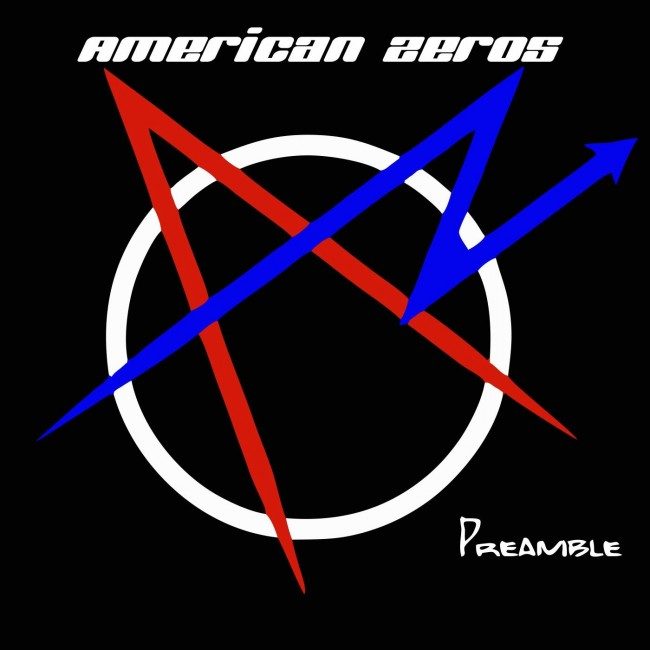On April 3rd, Milwaukee “shantygrass” band Pay The Devil will release their debut album, entitled Wrong Side of the River. Over the last three years Pay The Devil has worked hard to bring as much energy as possible to every venue they play, and the goal of this recording was to do the same. The album contains heavy influences of traditional Appalachian string-band music, bluegrass, folk, and punk. Clawhammer banjo kicks off a fair number of tracks including the title-track Wrong Side of the River which tells the story of a night of drinking at Merlefest gone wrong. Banjo player Ivan Eisenberg fills us in on the backstory…
“I wasn’t there, so I’ve got all this second hand, but one of my buddies apparently had too much whiskey one night. When he got tired he stripped down and went to sleep in his hammock. Come morning he wakes up soaking wet, naked, and hungover as can be, laying in the mud. He must have gotten up to piss and fallen in the river, gotten confused, and swam to the wrong side. Pretty lucky he didn’t die probably. Now there’s a joke running with my friends, ‘you better take it easy or you’ll wake up on the wrong side of the river.’
Merlefest is a crazy place. On one hand you have this dry festival, no booze. Doc Watson wasn’t a drinker. So what happens is the people that own the land surrounding the festival grounds rent out camping spots, and man, that is one of the most fun parties you’ll ever go to.” — Ivan Eisenberg
Wrong Side of the River contains the only vocal part from the band’s newest member, upright bass player Johanna Rose. She started playing with the group last fall, after cello player Kent Heberling left the band for scheduling reasons. Her vocals play nicely with banjo player Ivan Eisenberg’s during the bridge, and add a vocal layer that is missing on a few of the other tracks. Johanna is very active in the Milwaukee music scene, playing in bluegrass outfit Thistledown Thunders, hip-hop act Airo Kwill, and fronting her own band of rippers in New Boyz Club.
Hana was the first to coin the term Shantygrass, and the band quickly adopted it as their genre label of choice. Pay The Devil has their roots in sailing, as the two Ivans (Ivan Wayne Baker III and Ivan Eisenberg) first started playing music together after a sailboat race. It wasn’t until months later that Matt Gibbons (mandolin) and Jeremy Ault (washboard, spoons, drums) jumped on. Each member brings a complimentary set of influences including hillbilly, Irish, sea shanty, folk, outlaw country, rock, bluegrass, and punk music. As the band puts it, “A lot of old-time Appalachian music was punk music with different instruments. These weren’t pop stars writing these songs. These people were on the fringe of society, often outside the law. A lot of those songs are anti-establishment songs. They are leave me the hell alone songs.”
Ivan Baker has left his mark all over this album as well. He wrote first song on the album World’s End and modern day sea shanty, Mutinous. World’s End tells of a not so dystopian world where society has crumbled, and the song protagonist is left with an amount of freedom not quite possible in today’s consumer society.
Do I look for a job around this place Broken bottle go shave my face? Gravediggers wanted, they’re payin’ cash
I think I’ll grow my bead and get out of here
“It’s a love song that I wrote for my wife.” — Ivan Wayne Baker III
Mutinous is a bit darker of a tale. The song opens with unbridled enthusiasm from a ship’s crew.
We’ll sail for 10,000 miles We’ll sail for 10,000 more We’ll drink and we’ll fight and we’ll sail all nightWe’ll sail for 10,000 miles
As the journey continues and life aboard the ship gets tougher spirits begin to fade. A beautiful and mournful cello solo leads into this verse.
We’ll sail for one more watch We’ll sail for one watch moreWe’ve been drinkin’ our piss, and we’ll have no more of this
We’ll sail for one watch more
Desperation leads to mutiny. “It doesn’t end well”, says Baker. “Well, I guess it really only ends badly for one person, the captain.”
I suppose mutiny usually does.
Pay The Devil shares the singing and songwriting duties well. Mandolin player Matt Gibbons is responsible for Still Song, a song that attempts to lay out the various perils of making moonshine. A great deal of the lyrics come straight from a catalog for American Science and Surplus distillation kit.
The last line, “don’t try this at home”, really summarizes the song’s theme. The chorus echoes, “I might not get it right on my own.” The song’s subject is redeemed as a great guy in the end.
You heat it all up to 173 and the liquor starts to flow You heat it all up to 173 and the liquor starts to flow When the wash cools down and the lights turn low And there ain’t nowhere else to go
You know I’m gonna share every drop with her
What is the significance of 173 you ask? Well, that just so happens to be the boiling point of alcohol, Matt informs me.
Still Song is also the best example of Jeremy Ault’s washboard playing on the album. Be it the washboard, the spoons, a hand drum, or donkey jawbone Jeremy brings a needed percussive and old-time flair. Jeremy, who also plays the drums in the Milwaukee group NO/NO, grew up in the mountain’s of southwestern Pennsylvania. His connection to Milwaukee came through a fellowship at Marquette University, and his connection to the band came through Richard Eisenberg, Ivan Eisenberg’s father. Rich met Jeremy in Erie, Pennsylvania while Jeremy was working for Americorps, and steered him towards Pay The Devil when he moved to Wisconsin.
Drinking anthem Drink Up All The Liquor is an original song that sticks pretty closely to traditional Appalachian roots with heavy banjo, nice flat-picking guitar breaks, and mandolin trills. There is even an upright bass breakdown.
Sally Brown (Roll and Go) heads back to the sea. It served as a capstan song when tall ships ruled the ocean, and sailors sung work songs. We headed over to shanty.org for a definition
Capstan (or windlass) shanties were used for long or repetitive tasks that simply need a sustained rhythm. Raising or lowering the anchor by winding up the heavy anchor chain was their prime use. This winding was done by walking round and round pushing at the capstan bars, a long and continuous effort. These are the most developed of the work shanties. –http://www.shanty.org/shanties/types-of-shanties/
The album itself was recorded, mixed, and mastered by former cello player Kent Heberling in Milwaukee. The process was straight forward. Multi-tracking it down, live to tape. The vast majority of the musical parts were recorded in a single session. The goal was to best capture the raw energy that Pay The Devil brings to their live shows. From there, guest parts and layers were added. Most notably the harmonica part in World’s End which was performed by Richard Eisenberg, and the cello part in Mutinous by Kent himself.
Rolling Stone is actually a recording from one of the first Pay The Devil practices in Riverwest. Here is Ivan’s take on the recording.
“We wanted to use an old recording, one that really captured what we all wanted from this project. A great excuse to get together, make music, and have a blast. This recording captures that feeling, with all it’s drunken mistakes and shouting. The day we recorded that song, the apartment was filled with friends and family, and you can hear them all singing along. It was a great moment. That’s why you play music.” –Ivan Eisenberg
Overall nothing seems out of place, and nothing falls flat. And for an ambitious 16-track debut (13 full length songs) that is no small feat. The official release party is April 3rd at Linneman’s Riverwest Inn in Milwaukee. Joining Pay The Devil is an all-star lineup including banjo player Al Scorch, Joseph Huber (formally of .357 String Band), and Grasping At Straws. Doors at 8pm, music starts at 9pm.
What’s next for Pay The Devil
The band is already writing songs and thinking about putting together a follow-up album. They are shooting to get back into the studio this coming winter. You can follow them on Pay The Devil’s Facebook Page, and on their website paythedevil.us.
Airo Kwill • Al Scorch • Grasping at Straws • Joseph Huber • Linneman’s Riverwest Inn • MKE Music • New Boyz Club • no/no • Pay The Devil • shantygrass • Thistledown Thunders







